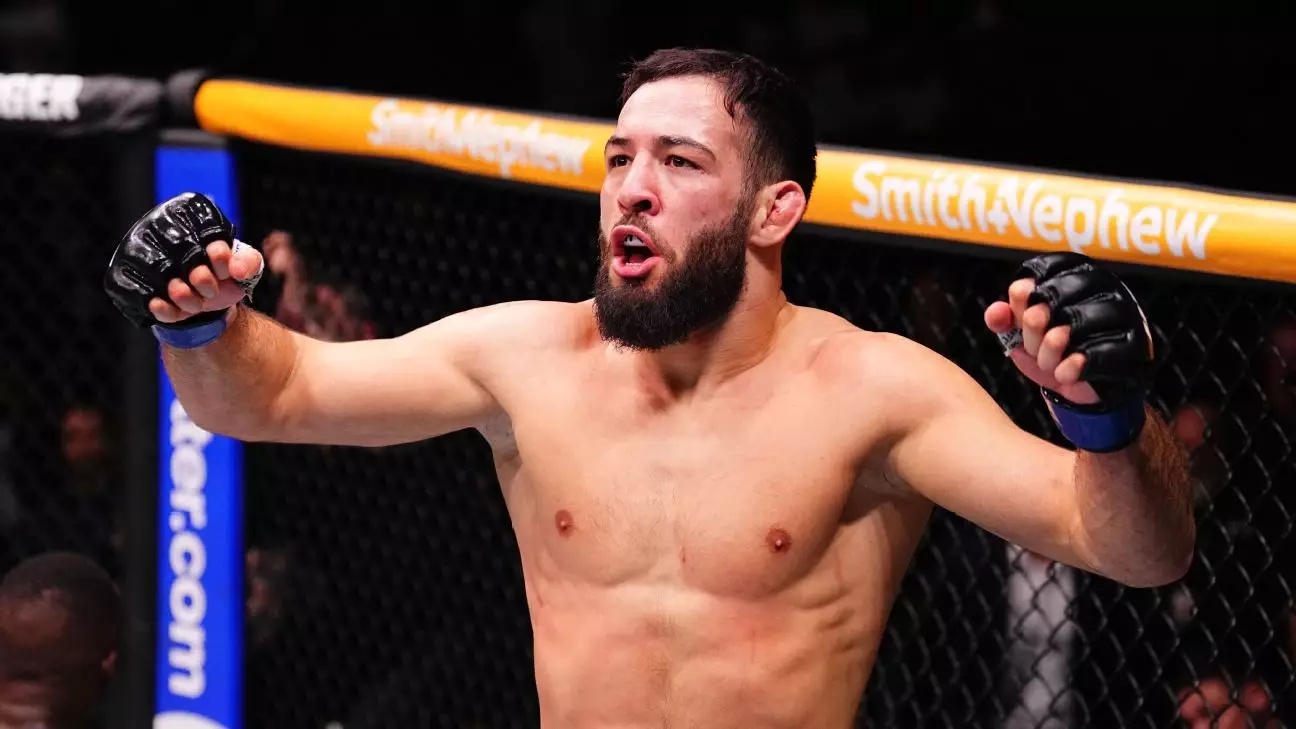Israel Adesanya’s illustrious career, once shining brightly in the world of mixed martial arts, now finds itself at a significant turning point. Following a confusing and disappointing sequence of fights, his recent TKO loss to Nassourdine Imavov at UFC Fight Night in Riyadh has left fans and analysts questioning not only his fighting prowess but also his future within the sport. Adesanya’s record, now at 24 wins and 5 losses, illustrates a troubling trend: four defeats in his last five outings, stirring doubts about his ability to reclaim a championship title.
The bout against Imavov marked Adesanya’s first non-title fight since 2019, a significant indicator of how far he has shifted from the peak of championship contention. The fight ended abruptly in the second round, initiated by a swift right hook that sent Adesanya reeling against the cage. Despite landing more total strikes—32 to Imavov’s 18—the methodical approach that once defined Adesanya’s fighting style has noticeably faltered, raising concerns over his effectiveness in the octagon.
Adesanya’s initial strategy appeared solid, focusing on body kicks and maintaining distance. However, as the fight progressed, he was unable to adapt, leading to critical mistakes that ultimately resulted in the referee stepping in to halt the fight. This sudden end prompted an immediate reflection on the concept of fighter longevity; Adesanya, once untouchable, now finds himself at a precipice. In stark contrast, Imavov’s victory represents a pivotal moment in his own career, potentially catapulting him into title contention and allowing him to dream of UFC championship glory.
Adesanya’s journey has recently included significant challenges, notably a devastating loss to Sean Strickland in 2023 which saw him stripped of his championship title. The time off taken to regroup and re-strategize, while noble, now questions whether it was enough. One cannot overlook the psychological effects of consecutive losses; while physical conditioning is essential, mental fortitude often decides the fate of fighters in high-pressure situations.
Imavov’s comments post-fight underscored his preparedness and belief in his abilities, something that may have been lacking in Adesanya’s demeanor. Following the match, he chose not to address the eager fans, perhaps reflecting an internal struggle with the defeat that many champions face. Was it burnout, or perhaps the haunting notion of being past his prime? The complexity of these questions hangs heavily in the air.
Looking forward, the path Adesanya must navigate is fraught with uncertainty. His next steps could define not just his career but also his legacy within the sport. UFC President Dana White has voiced an optimistic stance on Adesanya’s skill set, emphasizing that he demonstrated brilliance before getting caught by Imavov. However, the reality remains that transitioning from a title contender to a fighter seeking redemption is no easy feat.
As current champion Dricus Du Plessis prepares for a rematch with Sean Strickland, the landscape of the UFC’s middleweight division is rapidly evolving. Rising stars like Khamzat Chimaev loom on the horizon, presenting challenges that Adesanya may not have faced when he first ascended the ranks. The competition has intensified, and the once-clear route back to the championship now appears tangled and complex.
Ultimately, Israel Adesanya’s legacy is at stake. The fighter who once captured the imagination of fans worldwide must decide how to approach this difficult chapter in his career. Was this bout merely a speed bump, or a signal that it is time to evolve and refocus his approach in a changing sport? As the saying goes, true greatness lies not in never falling, but in rising after every fall. The question is, will Adesanya rise again, or has his time as a dominant force in UFC passed? Each defeat, every decision, will shape his story—a saga of resilience or, potentially, of fading glory.


Leave a Reply